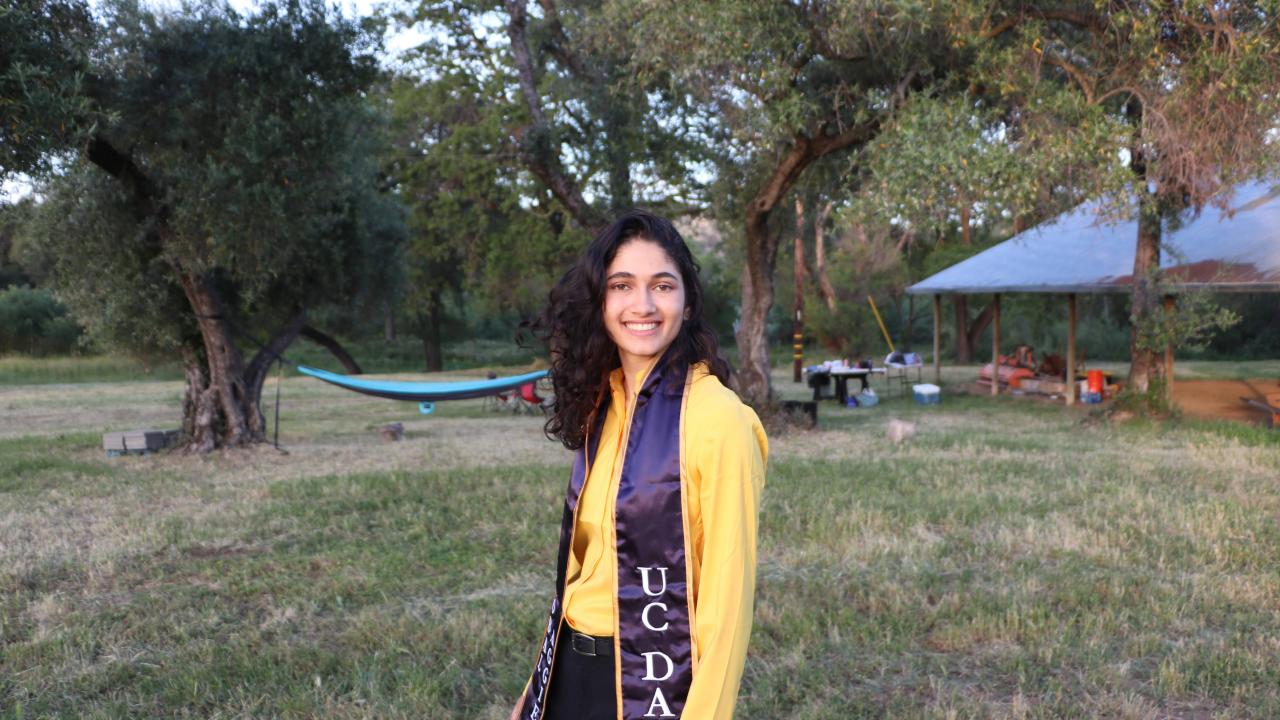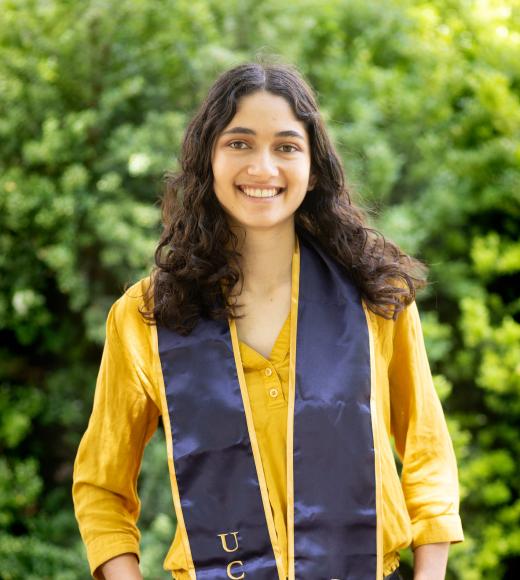
Outstanding Senior Spotlight: Sonia Bhaskaran
Sonia Bhaskaran didn’t initially see herself as an engineer. Now, she’s graduating with a degree in biomedical engineering and planning to pursue a Ph.D. in neuroengineering at the University of Michigan.

She talks about how her research projects and diversifying her undergraduate experience helped her home in on her passion for the field.
What initially inspired you to pursue engineering?
In elementary and early middle school, I actually thought that engineering was the last thing I’d want to study — I had this idea that I would do desk work and calculations all day and never get to interact with other people. But the first time I joined an engineering competition team, I found out how much collaboration and teamwork and creative design went into engineering, and that made me want to pursue it.
What interested you about biomedical engineering?
Initially, I chose biomedical engineering because I was interested in biology and thought the combination would be really interesting and challenging. Throughout my time at UC Davis, seeing the kinds of research professors do and the clinical collaborations that biomedical engineers participate in have made me realize how much good I could do with my major. I’ve become much more interested in specific clinical applications of biomedical engineering, such as addressing neurological disorders and improving women’s healthcare.
Can you share a project or research experience that you found particularly rewarding?
Working on my senior design project has been a really amazing and impactful experience. When we brought our prototype to the UC Davis Medical Center to have our clients test it out, they invited a bunch of occupational therapists and nurses to come and see the device. It was really cool watching all of these health professionals try out something we'd built and talk about how they might be able to put it to use in the ICU. Coming after a week of spending hours in the BioInnovation Lab doing sterility testing for our device, and then hours more in the Diane Bryant Engineering Student Design Center making last-minute adjustments to our prototype, it was rewarding to finally see something come of our hard work.
The project as a whole has taught me a lot about working with professionals from completely different fields as well as collaborating with a large team and making sure everyone has a chance to contribute and give their input. We also got to learn a lot of machining skills along the way and even get trained in welding, which was daunting at first but has turned out to be a very cool experience!
Will you be pursuing a Ph.D. directly after graduation?
After graduation, I will pursue my Ph.D. in biomedical engineering at the University of Michigan. I’ll be on the neuroengineering track, and I’m hoping to work on a project related to neurostimulation or brain-computer interfaces.
What instructor has inspired you the most?
One of my favorite engineering professors is Marc Facciotti, professor of biomedical engineering. He was my professor for biology, biomaterials and the Biodesign Challenge. I also work with him in my role as co-president of the BioInnovation Group, a club he advises. Professor Facciotti, along with BioInnovation Lab Manager Andrew Yao, put a ton of time and effort into creating more opportunities for experiential learning and student-driven innovation. At the same time, he clearly cares about the well-being of the students he interacts with. He’s a great mentor, advocate and teacher, and I’m really grateful for everything he does for students.
What advice would you give to incoming students?
My biggest piece of advice would be to try and get a range of experiences throughout your time as an undergraduate. I think, especially in terms of the sort of specializations you develop within your area of study, it’s easy to just stick with the first thing you enjoy. But when you’re trying to decide what to do after college, it’s really helpful to have experienced a range of different areas.
It always feels so impossible to figure out what the right path for you is, but the more things you’ve tried out, the more you feel like you’re making an informed decision. Plus, it’s nice to know that there isn’t necessarily one single path that’s best — sometimes, you find that there are a lot of different topics that interest you.
